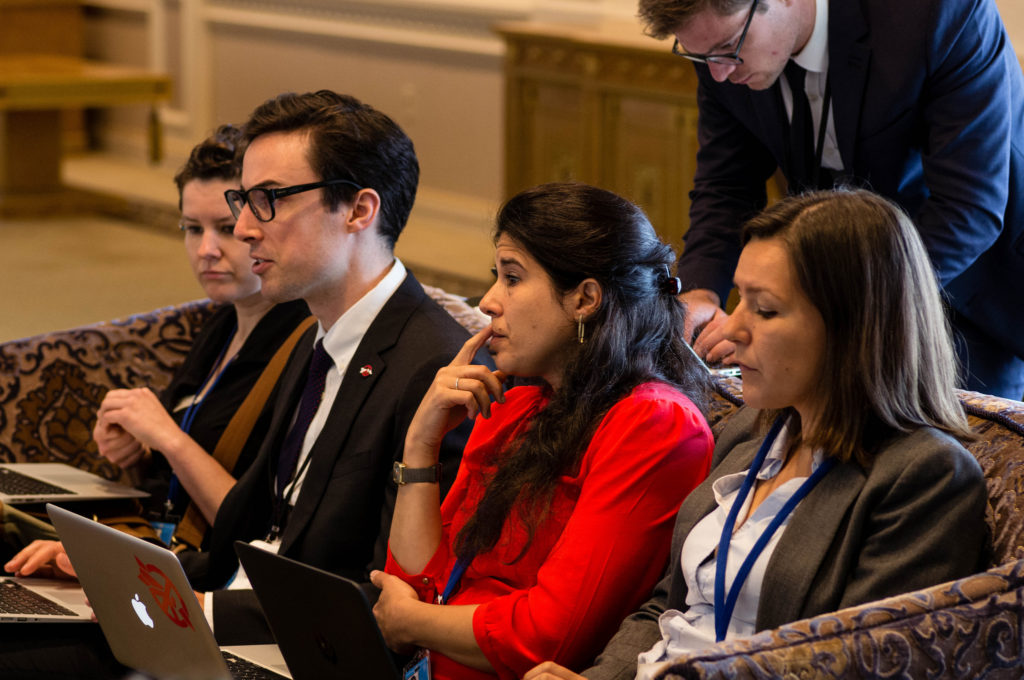Tonight (New York time) the President of the nuclear ban negotiations released the almost final draft of the treaty to prohibit nuclear weapons. The text is almost there- and there are just a few things to tidy up. States are still looking to adopt the treaty on Friday, and the trifecta of weapons of mass destruction prohibitions will finally be complete.The new text clearly prohibits nuclear weapons. In fact, the first article of the treaty has been renamed- Prohibitions. The text cannot be questioned- those countries that sign and ratify this treaty are not going to develop, test, produce, manufacture, acquire, possess, stockpile, transfer, receive, use, threaten to use, or assist with any of these things. Also, they won’t allow the stationing, installation or deploying of nuclear weapons on their territory or at any place under its jurisdiction or control.
As one campaigner said, it’s a bitchin’ prohibition.
Towards total elimination of nuclear weapons
Other aspects of the latest draft include some revision around the ways that nuclear armed countries can join the treaty and eliminate their weapons. The language looks complicated when you first read it, but read it two or three times and the pathway starts to get clearer.
Protecting victims and the environment
Language keeps improving on the section of the treaty that deals with the humanity and environment that would be affected by the treaty. The new text is getting better, but there still needs a few small tweaks to make it great. It is a really good advancement when it comes to international legal instruments around nuclear weapons, because it advances the connection between human rights, humanitarian law and disarmament efforts.
Institutional arrangements
What has made this treaty unique is the humanitarian aspect- and that’s why the current article on withdrawal needs to be changed. There is no so-called “supreme interest” that could ever justify a country pulling out of this treaty and developing, manufacturing, testing, possessing or using nuclear weapons. It’s language from previous arms control agreements, but doesn’t actually reflect the transition from nuclear arms control to humanitarian disarmament. This treaty prohibits, categorically, nuclear weapons because they are inhumane and indiscriminate and cause catastrophic humanitarian consequences. Like the convention on torture, or on genocide, this is not something any state should want to withdraw from.
On Friday
This coming Friday it’s looking good that states will adopt a new treaty to prohibit nuclear weapons. According to the draft, it will then open for signature in September in New York. Once states start signing the treaty, ratifications and entry into force will soon follow.
Adoption is in our reach. Let’s make history.

